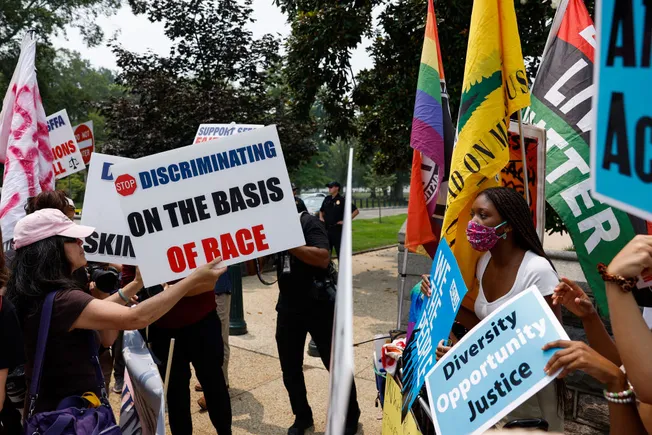With the proliferation of AI-driven recruiting software, it may seem that candidate screening is becoming easier than ever. But, for specialized employee populations — security cleared personnel, police and public safety officers, critical infrastructure employees and more — finding quality candidates can’t be solved with technology alone.
Some specialized labor pools are extremely small, like cleared employees. Other security-focused jobs are physically demanding and dangerous. These types of roles can present mental health challenges due to their high-stress nature. As a result, organizations across government and the private sector are struggling to recruit new workers.
Fortunately, there are tools available to HR departments and staffing agencies tasked with finding employees for high-security positions. Personality, behavioral and cognitive assessments complement existing screening tools and interviews, and they help identify potential employees with the personality traits needed for success in high-pressure or security-cleared roles.
“High-security jobs inherently require a high level of stress management, adaptability and personal integrity in a candidate,” says Patrick Moran, Pearson’s director of sales for government and public safety. “Personality measures capture these and other key aspects of a person’s presentation of themselves in these unique workplace settings.”
Assessments can improve the recruitment process for high-security candidates in a number of important ways, including:
1. Identifying the right candidates
Recruiting for high-security positions involves different approaches and candidate vetting strategies than those used for many other industries. Assessments provide valuable insights into candidates’ personality traits, which can be useful for vetting new entrants to an industry such as police and public safety officials. Assessments can also measure cognitive abilities; for example, Beta-4 has a variety of occupational applications and is a nonverbal measurement tool used in public safety-related industries.
When recruiting security-cleared personnel, assessments can help zero in on the right person, whether it’s an experienced employee interested in a new opportunity or a new employee who would need to obtain a security clearance for the first time. The process of getting clearance is time-consuming and can be costly, so public and private employers need to identify the ideal candidates before committing those resources.
“The capacity to filter out candidates who may be less successful in a particular job reduces numerous risk factors for the employer,” Moran says. “For these types of high-stakes positions, personality assessments should be a standard part of the interview process and hiring decisions.”
2. Ensuring alignment with contractors
Any recruiter working on security-clearance roles knows that contractors are a key part of the candidate pool. If a government department or organization is bringing in external contractors for high-security roles, it’s important that those contractors are closely vetted like internal employees. Doing so mitigates risks for the hiring organization, and assessments can act as an additional vetting tool.
WAIS-5, the fifth edition of the Wechsler Adult Intelligence Scale, was recently released and is considered the most advanced measure of cognitive abilities. This tool can augment existing vetting procedures for external contractors.
Experienced contractors in these high-security industries have often worked at many government agencies, defense contractor companies and similar organizations. Assessments can also help pinpoint those contractors who may be eligible for promotion or higher-level roles. Personality traits that denote leadership and people skills can be highlighted by assessments, and they can help inform promotion decisions along with performance reviews.
3. Supporting veteran recruiting
Assessments are important tools for the Department of Defense when making personnel decisions about active-duty military, and they can assist any employer in recruiting and retaining veteran employees. This specialized candidate population has unique skills and needs, and assessments can support their success in the military and beyond.
For example, assessments can help identify active-duty military for mission-critical assignments. They support the Holistic Health & Fitness (H2F) initiative, which emphasizes physical, mental and spiritual well-being for members of the military. Staying attuned to mental health challenges, suicide risks and overall wellness is crucial for maintaining a strong, healthy military force.
Similarly, cognitive and personality assessments can help employers identify veterans who may be suited to other high-security roles once their service is complete. Additionally, assessments can assist veterans themselves in making the jump to a new industry. “Vocational assessments give veterans direction on where to focus their energies based on their personal interests and established skills,” Moran says. “Ideally, veterans will seek roles where they will be more likely to find success and satisfaction in their employment,” he adds.
Consider the whole employee
Recruiting in high-security industries is a unique process, and recruiters need specialized tools to properly identify and vet candidates. Personality and behavioral assessments can augment the standard interview process and provide a deeper, more detailed picture of an entire candidate, beyond just their resume or LinkedIn profile.
The challenges of cleared and high-security positions call for deliberate investments in employee recruitment and development, and assessments allow hiring managers to go beyond a gut feeling about a candidate — instead, they provide tangible guidance about hiring specialized employees.
Contact Pearson to learn more about assessments for recruiting high-security employees.






Leave a Reply